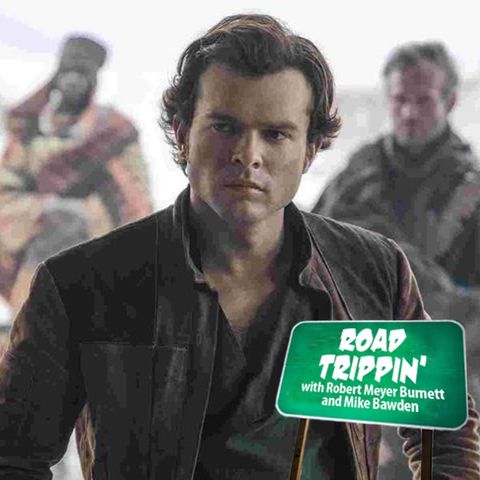When does character backstory become TMI? (#011)

Descarga y escucha en cualquier lugar
Descarga tus episodios favoritos y disfrútalos, ¡dondequiera que estés! Regístrate o inicia sesión ahora para acceder a la escucha sin conexión.
Descripción
I love meeting new people and learning new things. My business partner and buddy, Robert Meyer Burnett, likes to remind people that "everyone has a story to tell, all you...
mostra másMy business partner and buddy, Robert Meyer Burnett, likes to remind people that "everyone has a story to tell, all you have to do is listen."
But, friends, I'm tellin' ya. There is a point where you can tell someone you don't really know all that well far too much of your "story."
We've all been there. It usually happens at places where one person (the story teller) crosses a socially acceptable, albeit undrawn, line and moves from giving you interesting details and "backstory" into the land of "TMI."
Too much information.
The circumstances leading to the info dump can vary. Sometimes the storyteller assumes the relationship with the listener is much more familar (bordering on intimate) and plunges ahead with details that are either unneccessary or embarassing. Other times, the storyteller over-estimates their story's entertainment value and becomes uninteresting or downright obnoxious.
Then there are the times when the storyteller doesn't really care if the listener is interested or not. The arrogance of the storyteller is such that they feel entitled to pass along their marvelous tale no matter how stupid, ill-conceived, poorly crafted or genuinely uninteresting it may be.
In every case, the listener is subjected to an assault that is either going to result in greater caution the next time the pair meet or, in many cases, outright avoidance.
Narrative storytelling - the kind found in movies and television, primarily, can suffer from the same kind of abuse. Too much time spent providing backstory for a character can actually make the characgter seem less interesting if for no other reason than they aren't really doing anything in "the present" meaning the story that brought us to the table in the first place isn't going anywhere.
Don't get me wrong. Some backstory is essential to helping us understand a character's motivation. But backstory can't be the story. This is true especially when you're writing genre fiction that is, at its heart, action-oriented (hence the term "action-adventure"). Doing stuff is the point of the story - not self-examination. Not usually, anyway.
Rob and I discuss this premise in some detail in today's podcast. I think most folks will find the discussion to be pretty interesting because it looks at character development and backstory in a slightly different way. And we touch on what we think the driving forces might be behind the desire of writers - and some audiences - to continually drop back and wallow in character backstory.
Here's a hint: I'll be taking a much deeper dive into this on my Sunday blog.
Until then, let us know what you think about the idea that sometimes a character can have too much backstory. You can do that by sending us a letter. Just go to our website: www.postgeeksingularity.com, click on the "Contact Us" link in the menu and then send us a message to let us know how we're doing and what's on your mind.
We look forward to hearing from you.
I invite you to listen in on my weekday conversations with my friend and business partner, Robert Meyer Burnett, as we talk about the things we love: great movies, inspiring television programming, nostalgic genre entertainment, and pop culture.
- Mike Bawden, co-host of the ROADTRIPPIN' Podcast
This is an original show produced for the PGS podcast network and was recorded on April 20, 2022.
Información
| Autor | ICU LLC |
| Organización | Imagination Connoisseurs Unlimited, LLC |
| Página web | - |
| Etiquetas |
Copyright 2024 - Spreaker Inc. an iHeartMedia Company

Comentarios